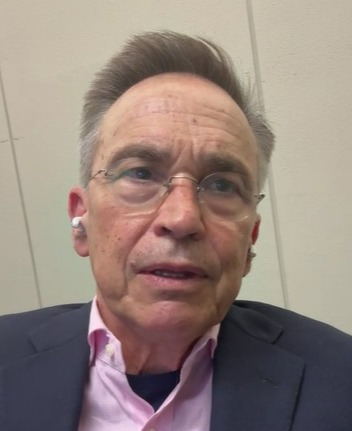"To eliminate hepatitis C, countries must test a wider range of people for the disease. Even low-income countries like Rwanda in Africa are testing all adults for hepatitis C. We have heard that Korea is also considering including Hepatitis C testing in its national screening program. It is important to finish such discussion and implement it quickly."
Dr. John W. Ward, Director of Coalition for Global Hepatitis Elimination (CGHE), gave this advice in a recent online interview with Korea Biomedical Review on Korea's strategy to eliminate hepatitis C.
Dr. Ward chaired a session of the Hepatitis Elimination Committee at the Asia-Pacific Association for the Study of the Liver (APASL) Annual Meeting (APASL 2024) in Tokyo in late March to get an overview of the status of hepatitis C elimination in Asia.

Dr. Ward, who met this paper’s readers for the first time since APASL 2023, noted that Korea has made modest but positive progress in the fight against hepatitis C in the past year.
"The first step to eliminating hepatitis C is to develop a national strategy appropriate to the current situation, and I've heard that Korea has recently developed such a strategy," Dr. Ward said. "This is a very positive step, but now Korea must move quickly to finalize it and make it workable."
Last year, the government announced the "First Basic Plan for the Management of Primary Viral Hepatitis (Hepatitis B and C) (2023-2027)," which aims to establish a full-cycle (prevention, diagnosis, and treatment) hepatitis management system.
As a detailed strategy for proactive detection and management of hepatitis patients, the basic plan states, "Based on the results of the policy research service in 2021-2022, we will reattempt the National Health Examination Committee’s evaluation and push for introducing hepatitis C in the national health examination items (in the second half of 2023)."
Under this basic plan, the Korea Disease Control and Prevention Agency (KDCA) submitted a proposal to the Ministry of Health and Welfare in the second half of last year. However, the specialized subcommittee of the National Health Examination Committee, originally scheduled for September, was not held. After the meeting was unexpectedly postponed due to the parliamentary audit, there has been no news of the special subcommittee’s review until now.
Even if the subcommittee review is completed in the first half of this year and the proposal goes to the National Health Examination Committee, the planned 2025 national screening for hepatitis C is unlikely to become a reality.
Dr. Ward emphasized the importance of widespread screening for hepatitis C in the national strategy.
"National plans need to be followed by specific implementation strategies to scale up hepatitis C testing to a broader population," Dr. Ward said. "For example, low-income countries like Rwanda, middle-income countries like Egypt, and high-income countries like the United States now test 'all adults' for hepatitis C. This is the only way to identify and treat all of the hidden hepatitis C patients in the population."
Hepatitis C is a silent killer that can go unnoticed for a long time and continue to destroy the liver, and by the time patients realize they have it, it's too late, Dr. Ward said. That's why it's important to test as broad a range of people as possible to identify and treat those with it. It is more important than anything else to make sure people are aware of hepatitis C, understand its devastating effects, and encourage them to seek treatment early.
"As I said a year ago, Korea has all the capacity to eliminate hepatitis C, including a well-developed national health screening program, treatment infrastructure, and the availability of a cure. It's just a matter of getting started," Ward said. "The government’s commitment is most important. We are at a very important tipping point to achieve the 2030 elimination of hepatitis C."
Dr. Ward continued, "There are many countries in Asia, such as Japan, Taiwan, and Australia, that have already achieved or are well on their way to achieving the goal of eliminating hepatitis C. Why should Korea, a leader among Asian countries, be left behind? Now is a critical time for the Korean government to decide to eliminate hepatitis C."
Related articles
- Grounds found for including hepatitis C in national health screening
- Gilead emphasizes high hepatitis C incidence in Jeju
- ‘Korea should take action at the national level to eradicate hepatitis C’
- ‘No more excuses for delaying hepatitis C national examination any longer’
- Korea, China to collaborate on infectious disease management
- Hepatitis C test at age 56 added to free national health checkup in Korea starting in 2025

